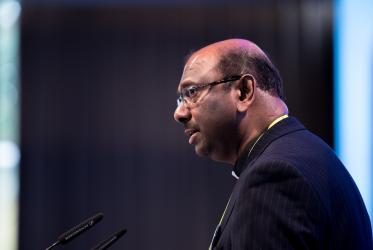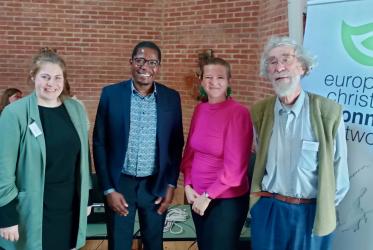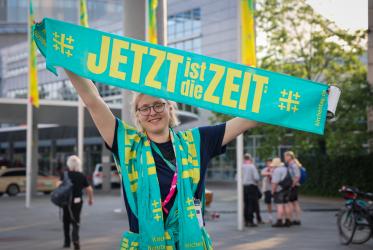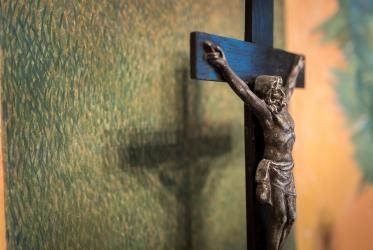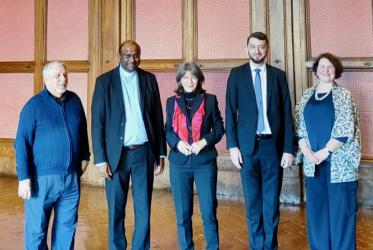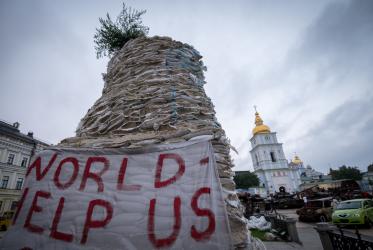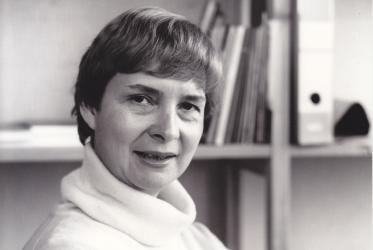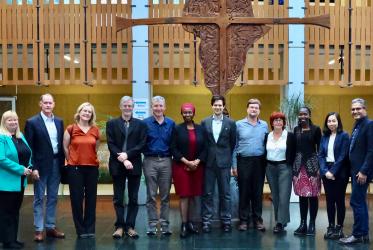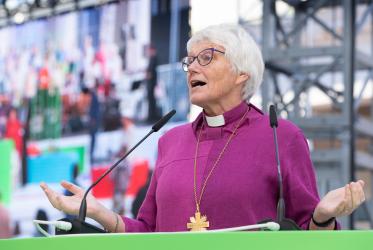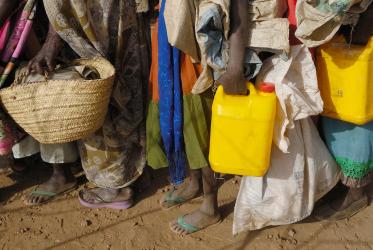Displaying 1 - 20 of 353
23 April 2024
Seminar: The Feast of Creation and the Mystery of Creation: Ecumenism, Theology, Liturgy, and Signs of the Times in Dialogue
15 - 16 March 2024
Cittadella Laudato Si’ (known as “Cittadella”) – Via degli Ancaiani 3, Assisi
WCC and partners to host seminar in Assisi on Feast of Creation
21 February 2024
German Protestant Kirchentag opens in Nuremberg
09 June 2023
WCC Easter message: Christ makes all things new
31 March 2023
2022 Social Forum: Water for human rights and sustainable development
03 - 04 November 2022
Palais des Nations in Geneva, Switzerland
Christ’s Love (Re)moves Borders – GETI 2022 in images
13 September 2022


